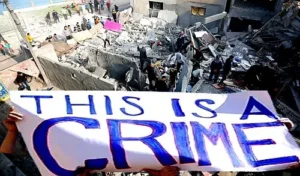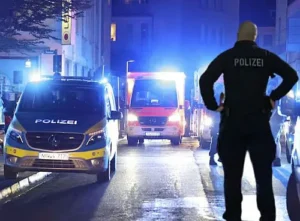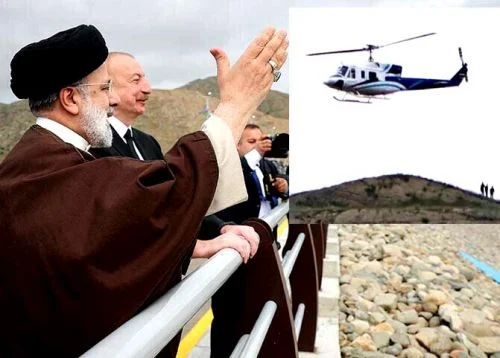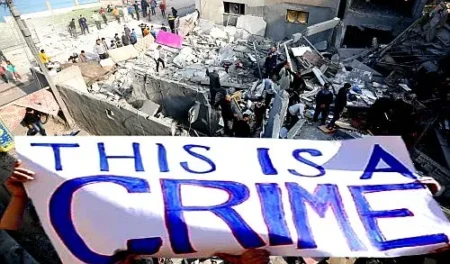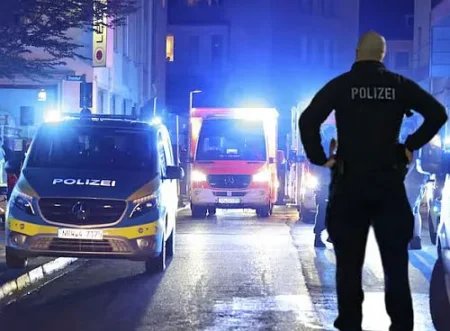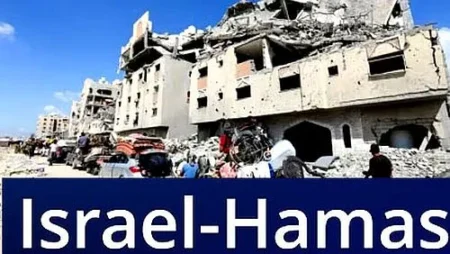Ebrahim Raisi Iranian President Confirmed dead
On Monday, Iranian authorities and state media reported the deaths of President Ebrahim Raisi, Foreign Minister Hossein Amirabdollahian, and several other officials in a helicopter crash. The tragic incident occurred in a mountainous area close to the Azerbaijan border.
The passing of Iran’s president is likely to maintain the nation’s domestic and international policies significantly.
However, it coincides with heightened global tensions and intensifies speculation about the future successor of Iran’s Supreme Leader, Ayatollah Ali Khamenei. At 85 years old, Khamenei has prompted discussions about potential successors, and Ebrahim Raisi had been considered a strong candidate for the position.
Ebrahim Raisi, 63, and Amirabdollahian, 60, were part of a group traveling in a convoy of three helicopters from the Azerbaijan border in Iran’s mountainous northwest to Tabriz following the inauguration of a joint dam project. On Sunday, one of the helicopters crashed in heavy fog in a remote area.
The officials were unaccounted for over 12 hours, as search efforts were hampered by dense fog, blizzard conditions, and challenging terrain throughout the night.
Developments
- According to Iran’s state media, Vice President Mohammad Mokhber has been designated as the acting president, and Ali Bagheri Kani has taken on the role of acting foreign minister. The country has declared five days of public mourning.
- Ebrahim Raisi and his entourage were aboard a U.S.-manufactured Bell 212 helicopter. Iran has yet to release any statements regarding an investigation into the crash. Video footage from Iran’s Red Crescent depicted rescue teams retrieving bodies from the wreckage site.
-
Former Iranian Foreign Minister Mohammad Javad Zarif, in an interview on state television, attributed the difficulty in acquiring aviation replacement parts in Iran to U.S. sanctions.
- The deaths of Iran’s president and top diplomat remove two key figures from the political landscape at a time of heightened tension in the region, particularly due to the Israel-Hamas conflict in Gaza and recent direct military engagements between Iran and Israel, which have raised fears of a broader regional war. Domestically, Iran’s theocratic regime is grappling with widespread public discontent over corruption, economic struggles exacerbated by sanctions, and increasing demands for an end to clerical rule.
Condolences pour in from world leaders
Indian Prime Minister Narendra Modi expressed being “deeply saddened and shocked” by the news. European Council President Charles Michel conveyed the EU’s “sincere condolences” to the families of the deceased. Russian President Vladimir Putin characterized Ebrahim Raisi as a “true friend of Russia” and an “outstanding politician.
Readmore Iran’s President:helicopter crashes upon landing state TV say May 2024
Syrian President Bashar al-Assad, Lebanon’s Foreign Minister Abdallah Bou Habib, and leaders of Hezbollah extended their condolences, with Syria and Lebanon declaring three days of mourning in honor of the deceased. As of now, no statement has been issued by the White House.
What happens now?
Iran’s Supreme Leader, Ayatollah Ali Khamenei, holds authority over significant policy decisions in the country.
Yet, as per Iran’s constitution, in the event of the president being unable to fulfill their duties due to illness or death, the vice president assumes the role. Consequently, power will now be transferred to Mohammad Mokhber.
Mokhber, aged 68, has served as Ebrahim Raisi’s deputy since the 2021 election, which saw Ebrahim Raisi assume the presidency.
Known for his proximity to Khamenei, Mokhber shares Ebrahim Raisi’s conservative stance on various issues, including enforcement of “morality” laws, suppression of protests, and negotiations regarding Iran’s nuclear program with Western nations.
He has a background as a former officer in Iran’s Revolutionary Guard Corps and previously led Setad, a significant economic entity under Khamenei’s control.
New Elections
Mokhber will assume the role of interim president. New elections must be scheduled within the next 50 days, and Mokhber will be involved in a three-person council responsible for coordinating Iran’s upcoming national elections.
Trita Parsi, an authority on Iran and the co-founder and executive vice president of the Quincy Institute for Responsible Statecraft, a think tank based in Washington, remarked, “Genuine alternatives to Iran’s hardline factions have consistently been barred from participating in recent elections.
Who was Ebrahim Raisi?
Ebrahim Raisi assumed the presidency following his tenure as the head of Iran’s judiciary.
His career trajectory saw him climb to the position of Iran’s highest legal authority. He initially served as a prosecutor handling cases related to the Iran-Iraq war from 1980 to 1988.
Ebrahim Raisi garnered the nickname “Butcher of Tehran” from activists due to his purported involvement as one of four judges overseeing the mass execution of numerous political prisoners. These alleged killings, estimated by Human Rights Watch to have resulted in the execution of 2,800 to 5,000 individuals, have never been officially acknowledged by Iran.
In a 2019 sanctions notice, the U.S. Treasury Department stated that as deputy prosecutor general of Tehran, Raisi was involved in a “death commission” responsible for ordering the extrajudicial executions of thousands of political prisoners in 1988. In 2021, when questioned about these killings, Ebrahim Raisi referred to himself as a “defender of human rights.
What information do we have regarding the cause of the crash in Iran?
There has yet to be much concrete information available. However, on social media, a few theories, mostly speculative and lacking evidence, have emerged.
It’s common in Iran to point fingers at Israel, the country’s primary regional adversary, whenever there’s an unexplained incident or the death of a prominent security or nuclear figure.
Tehran has not yet commented on this matter. However, Israeli officials have reportedly been briefing reporters anonymously, stating “it wasn’t us.”
Iran’s longstanding isolation from the international community has resulted in one of the world’s oldest civil aviation fleets, contributing to a concerning trend in its aviation safety record. Due to sanctions, Western manufacturers are barred from selling aircraft and essential spare parts to Iran.
